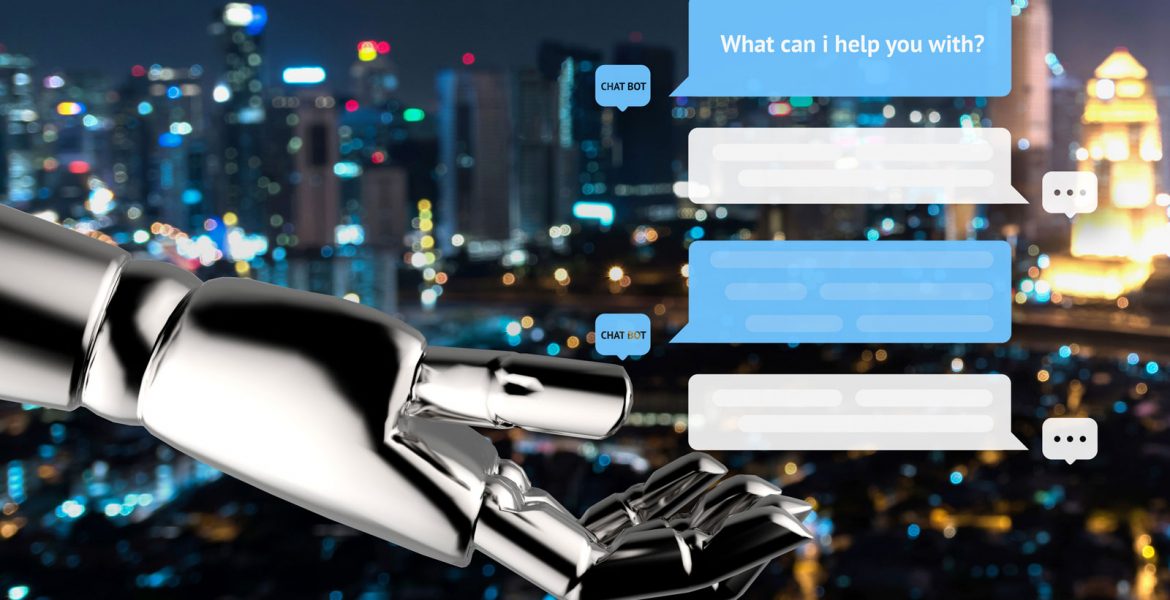The proliferation of virtual assistants such as the Google Home and Amazon Alexa devices have made chatbots one of the recent, vogue marketing trends. Brands across the globe are developing FOMO (fear of missing out) and trying to figure out how to incorporate chatbots into their digital strategies. If you’re still on the fence, read on about how chatbots can help influence your website’s search engine optimization, revenue and customer retention.
If you’re new to the game, let’s outline what chatbots are.
What Are Chatbots?
A chatbot is a program used through a chat interface and powered by a script or artificial intelligence. The service could be many things, ranging from functional to fun, and it could live in any major chat product, such as Facebook Messenger, Slack, chat modules on websites or Short Message Service (SMS).
Chatbots provide personalized answers to customer service questions, which can be customized to fit the brand voice. They can be programmed to be multilingual and also act as shopping concierges that can sift through all available inventory to find and suggest relevant products to shoppers. They can provide 24/7 product support services in an interactive manner that are fast, carry a wealth of information and are available when and where customers spend the most time — on messaging applications and social media platforms.
Choosing the Right Chatbot
Businesses need to decide what type of bot best serves the needs of their audience. Here are three types of chatbots to consider.
Artificial Intelligence (AI) Bots
An AI bot (ex. – Slack) can adapt to conversational dialect and phrasing. Programmed to learn from previous conversations, AI bots are constantly improving their responses. But they can also go “off-script,” which requires developers to watch for and manage errors. Chatbots aim to understand the intent of the users’ questions using natural language processing, not keyword-based queries, and provide them with the most accurate answers to what they seek.
Scripted Bots
Scripted bots (ex. – Finn.ai) provide limited functionality specific to a single task. They are fully dependent on the programming and scripts provided by their programmers but allow full control of the program’s message. Unlike AI bots, these can’t go “off-script.”
Hybrid Bots
Hybrid bots (ex. – Kik) handle more complex needs that can transfer from bots to humans based on predetermined rules. Hybrid bots tend to allow quicker diagnosis and troubleshooting. You could consider this version if you have multiple funnels for your customer base (sales vs. customer service) where the bot can navigate users to the appropriate department.
How Chatbots Impact Your Brand’s Website
Finally, the good stuff.
Chatbots are already integrating in search engines, which is impacting brand visibility. For example, Bing has been incorporating a chatbot for Bing Places for Business location owners. These Skype-based bots can be found within Bing’s search engine results pages (SERPs) and can be integrated into messaging platforms and websites.
While chatbot integration into search engine results seems inevitable, it is not the only way it can impact your SEO. Chatbots can also improve your website’s landing pages. Search engines are obsessed with providing users the best search result for their query. The more a user engages with your website is often seen as a good user experience from a search engine’s perspective. One factor of site engagement is what Moz branded as pogo-sticking. If users are hitting your website and leaving immediately, then search engines will use these as a factor in future ranking adjustments.
While creating contextually relevant content and a superior user experience should be 99 percent of your focus, chatbots can help alleviate users’ frustrations by incorporating a chat feature on the website to keep users on your site longer by helping them find the information they seek.
Chatbots can also improve your leads and revenue. Depending on your revenue model, chatbots can generate direct revenue and indirect leads for your business. Your business chatbot can deliver appropriate ads for deals and promotions when chatting with a user, which can help close sales. You can also sell goods through an Alexa skill for an easy and immediate conversion.
Bonus: Chatbots can provide 24/7 service to your customers even when the business is closed, which helps lower overhead costs.
Additionally, chatbots can impact user retention on your website through improved intelligence and content experience. Chatbot analytics like Google’s Chatbase help you optimize your bot and fill in important content gaps. By being able to track users’ queries and conversations, you’ll be better equipped to win and retain customers.
Resistance Is Futile: Consider Chatbots Now
According to a Business Insider tech report, more than 85 percent of customer interactions will be managed without a human by 2020, and chatbots are also expected to be the top consumer applications of AI over the next five years.
While they do not replace great content or customer service, adopting chatbots can be a smart extension of your business online.

